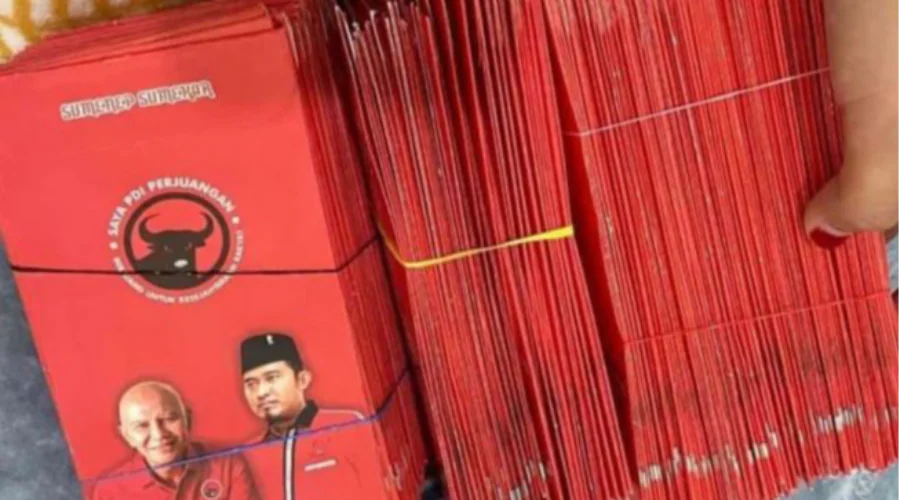
- 29 Mar
- 2023
Ilustrasi gambar (Twitter)
Viral Circulating Video Distributing Envelopes with Party Logos at Mosques, Here's the Response of UM Surabaya Legal Experts
The viral video of distributing envelopes with the party logo at the mosque has caused a polemic in the community. Via the Twitter account @PartaiSocmed, he has shared a video of a person giving a red PDIP envelope, complete with the logo of a bull's head, to worshipers in a mosque or place of worship.
In the envelope pictured in the video, there is a photo of Acting Chairman of the Regional Leadership Council (DPD) PDIP East Java (East Java) Said Abdullah and Chairman of the PDIP DPC Sumenep Ahmad Fauzi. Netizens' replies in the link to the tweet also show the contents of an envelope containing IDR 300,000, consisting of two IDR 100,000 notes and two IDR 50,000 notes.
In response to this, the UM Surabaya legal expert, Satria Unggul Wicaksana, gave a response.
First, Satria said that money politics is the forerunner of a corrupt political regeneration process. According to him, transactional money politics will win over the oligarchic groups who benefit a lot from the political succession process that is being carried out.
"Through access to "dark" political capital, it produces a predatory political process which then results in the violation of the basic rights of citizens, strengthening good corrupt practices that are carried out openly, such as corruption in the procurement of goods and services, to corruption in legislation," said Satria who is also the Director of the UM Surabaya Center for Anti-Corruption Studies.
The two Satria said that the people's permissiveness towards money politics will create opportunities for transactions between participants and the electorate.
"Of course we cannot fully blame what the community is experiencing, apart from the level of understanding, it is also because of the missed perception that was conveyed, that money politics is part of political charity, voluntary assistance, and various other names," he added again on Wednesday (29/3/ 23)
Third, the practice of money politics is clearly contrary to the basic principles of fair and just elections. Moreover, the electorate can be categorized as a rational voter, therefore the use of money politics must be avoided in such a way, the public can mitigate the occurrence of money politics with various social instruments, so that awareness and culture of anti-money politics will grow.
Fourth, a transactional political culture will make the course of electoral democracy unhealthy and produce leaders who have the potential to be corrupt, suppress citizens' basic rights, and negate sustainable development.
Finally, Satria also said that using mosque facilities as a money political transaction is certainly not very elegant, especially in the atmosphere of the holy month of Ramadan.
"Political morality and morality must be upheld as the basis for better Indonesian democracy, by avoiding various practices of money politics and other violations," said Satria.










(0) Comments